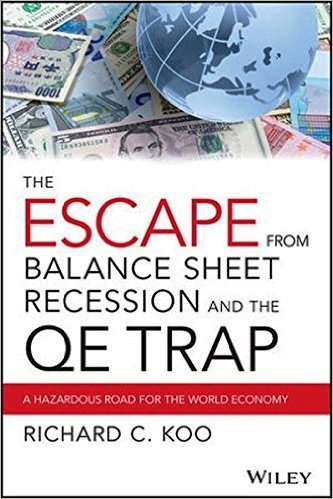Ever since the GFC, economists have struggled to explain events, to direct policy, or to accurately predict trends.
Could it be that their models (theories?) are missing something vital?
According to Richard Koo, economist with Nomura Research Institute, the answer is definitely, “yes”.
According to Koo, traditional economics assumes that there is a plentiful supply of borrowers and lenders, if only the conditions were right. Thus, it becomes a matter of adjusting the interest rate to the appropriate level, and the desired adjustments will occur.
However, since the GFC, there are too many people with too much debt, and they will not borrow, even at very low interest rates. Survival, not profit maximisation, is their objective, and they must reduce their debts and repair their balance sheets. He calls this state of affairs a “balance sheet recession”. Traditional economic models don’t allow for this state of affairs.
Monetary policy alone will not fix the problem, and fiscal policy is needed.
Koo contrasts the post GFC policies in Europe and the USA, and concludes that USA’s better economic performance is due to better policy in USA. European policy has been awful.
The full paper, “The Other Half of Macroeconomics and Three Stages of Economic Development”, by Richard C. Koo, can be found at: http://capital2016.weaconferences.net/files/2016/05/WEA-CapitalConference2016-Koo.pdf
